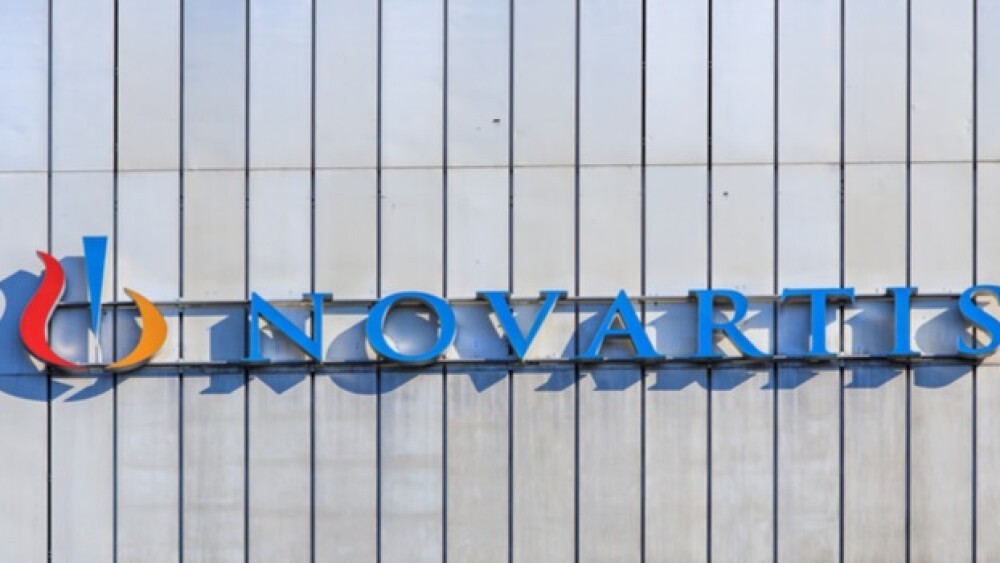In an interview with CNBC Monday, Novartis Chief Executive Officer Vas Narasimhan noted that the company is looking to become an entity that doesn’t draw its profits from treating disease, but will make money by providing cures.
Denis Linine / Shutterstock
Following a strong post-hoc analysis of mid-stage data in the fall of 2018, Novartis announced this morning the company’s experimental humanized anti-P-selectin monoclonal antibody was crizanlizumab granted Breakthrough Therapy Status by the U.S. Food and Drug Administration (FDA).
Crizanlizumab received the designation as a treatment for the prevention of vaso-occlusive crises (VOCs) in patients of all genotypes with sickle cell disease (SCD). VOCs, which can be extremely painful for patients, happen when multiple blood cells stick to each other and to blood vessels, causing blockages.
The designation was awarded following results from the Phase II SUSTAIN trial, which showed that crizanlizumab reduced the median annual rate of VOCs leading to health care visits by 45.3 percent compared to placebo. The SUSTAIN study also showed that crizanlizumab significantly increased the percentage of patients who did not experience any VOCs vs placebo, 35.8 percent vs. 16.9 percent.
The FDA designation came one day after the Swiss pharma giant laid out its map for a future of success, sustainability and, if things work out, respect from consumers. In an interview with CNBC Monday, Novartis Chief Executive Officer Vas Narasimhan noted that the company is looking to become an entity that doesn’t draw its profits from treating disease, but will make money by providing cures. He pointed to the moves Novartis has made toward gene and cellular therapies that have the potential to cure patients of various diseases in what many researchers hope could be a “one-and-done” treatment. Narasimhan told CNBC that cures are what society wants and that is something they will value. The challenge will be determining the payment system.
As an example, the company is eying potential approval of a gene therapy for spinal muscular atrophy (SMA), a fatal genetic disease marked by progressive, debilitating muscle weakness in infants and toddlers. Novartis’ gene therapy Zolgensma is expected to be approved by the FDA this year and could have a price tag of between $4 and $5 million. While significantly high, non-profit SMA groups have already suggested that the gene therapy treatment could be more cost-effective than Spinraza, the only approved SMA treatment on the market.
During its presentation at J.P. Morgan, Novartis pointed to the moves it has made as the company pivots to this future of gene and cell therapies. The presentation noted that over the course of 2018, the company made several deals to sell off non-essential businesses, such as the $13 billion sale of its share of a consumer health business to partner GlaxoSmithKline. Not only that, but Novartis also made significant acquisitions to reshape its portfolio, including the $8.7 billion acquisition of AveXis for the SMA gene therapy. The deal for AveXis wasn’t the only gene therapy deal the company struck. Novartis began 2018 with a deal for Spark Therapeutics’ gene therapy Luxturna, a one-time gene therapy to restore functional vision in children and adult patients with biallelic mutations of the RPE65 (retinal pigment epithelial 65 kDa protein) gene.
In his interview with CNBC, Narasimhan said the company is about “platforms,” which also includes radio-ligand therapy. The company forged ahead in that area with two acquisitions, Advanced Accelerator Applications and Endocyte. Radiopharmaceuticals like Endocyte’s Lu-PSMA-617 are innovative medicinal formulations containing radioisotopes used clinically for both diagnosis and therapy. When the Endocyte deal was announced, Novartis noted the field is expected to become an increasingly important treatment option for patients, as well as a key growth driver for the company’s oncology business.
Shares of Novartis are up a little more than 1 percent in premarket trading to $86.07.





